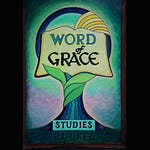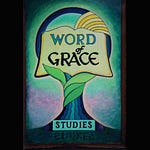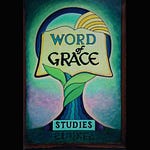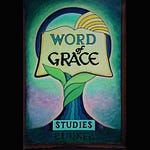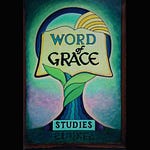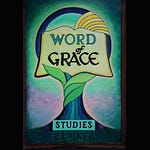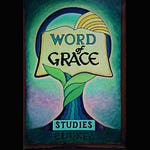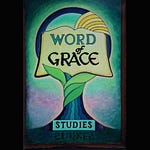The Healing of a Lame Man (Acts 3:1-10)
Peter and John went up together to the temple at the hour of prayer, the ninth hour. A certain man, lame from his mother’s womb, was carried daily and laid at the temple gate called Beautiful, where he asked for alms from those entering the temple. Seeing Peter and John about to go in, he asked for alms. Peter, fastening his eyes on him with John, said, “Look at us.” Expecting to receive something from them, the man gave them his attention.
Peter then said, “Silver and gold I do not have, but what I do have I give you: In the name of Jesus Christ of Nazareth, rise up and walk.” Peter took him by the right hand and lifted him up, and immediately his feet and ankle bones received strength. He leaped up, stood, and walked, entering the temple with them, walking, leaping, and praising God. All the people saw him and were amazed, recognizing him as the man who had sat begging at the Beautiful Gate. They were filled with wonder and amazement at what had happened to him.
Peter’s Second Address to Israel Concerning the Resurrection of Christ (Acts 3:11-26)
As the healed man clung to Peter and John, all the people ran to them in Solomon’s Porch, greatly amazed. Peter addressed them, asking why they marveled at this or why they looked at them as though they had made the man walk by their own power or holiness. He declared that the God of Abraham, Isaac, and Jacob had glorified His servant Jesus, whom they had delivered up and denied in the presence of Pilate, even when he was determined to release Him.
Peter accused them of denying the Holy and Righteous One and requesting a murderer be released instead. He declared that Jesus, whom they had killed, was raised from the dead by God, and they were witnesses. Through faith in His name, the lame man had been healed. Peter acknowledged that they and their rulers had acted in ignorance, fulfilling what God foretold through the prophets—that the Christ would suffer. He urged them to repent and be converted so that their sins might be blotted out and times of refreshing might come from the presence of the Lord.
Peter spoke of the promise that Jesus would return, whom heaven must receive until the times of restoration. He referenced Moses, who had said that God would raise up a prophet like him, and warned that those who did not listen to Him would be utterly destroyed. All the prophets had foretold these days, and they were the children of the covenant God made with their fathers. God sent Jesus to bless them by turning them away from their iniquities.
Peter and John are Imprisoned for Speaking of the Resurrected Christ (Acts 4:1-4)
As Peter and John spoke to the people, the priests, the captain of the temple, and the Sadducees came upon them, being greatly disturbed that they taught the people and preached in Jesus the resurrection from the dead. They laid hands on them and put them in custody until the next day, as it was already evening. However, many who heard the word believed, and the number of men grew to about five thousand.
Peter and John Before the Rulers, Scribes, and Elders of Israel (Acts 4:5-22)
The next day, the rulers, elders, and scribes gathered in Jerusalem, along with Annas the high priest, Caiaphas, John, Alexander, and others of the high priest’s family. They set Peter and John before them and asked, “By what power or by what name have you done this?”
Peter, filled with the Holy Spirit, boldly responded that they were being examined for a good deed done to a helpless man and declared that he was healed by the name of Jesus Christ of Nazareth, whom they had crucified but whom God raised from the dead. He quoted Scripture, saying, “The stone which was rejected by you builders has become the chief cornerstone,” and proclaimed that salvation is found in no one else, for there is no other name under heaven given among men by which we must be saved.
The council, seeing the boldness of Peter and John and perceiving that they were uneducated and untrained men, marveled. They realized that they had been with Jesus. Seeing the healed man standing with them, they could say nothing against it. After conferring among themselves, they acknowledged that a notable miracle had been done and was evident to all in Jerusalem. However, to prevent it from spreading, they strictly warned Peter and John not to speak or teach in the name of Jesus.
Peter and John answered that they could not but speak the things they had seen and heard. The council threatened them further but, finding no way to punish them because of the people, released them. The people glorified God for what had been done, for the man who had been healed was over forty years old.
The Disciples Speak the Word of God with Boldness (Acts 4:23-31)
Peter and John reported to the church all that the high priests and elders had said to them. The church, hearing this, raised their voices to God with one accord, beginning their prayer with worship, recognizing God as the Creator. They acknowledged the fulfillment of prophecy, quoting David’s words about the nations raging and rulers gathering against the Lord and His Christ. They noted that Herod, Pontius Pilate, the Gentiles, and Israel had gathered against Jesus, fulfilling God’s purpose.
They then cried out for God to take note of the leaders’ threats and grant them boldness to speak His word. They asked that signs and wonders be done through the name of Jesus. When they prayed, the place where they were assembled was shaken, and they were all filled with the Holy Spirit, enabling them to speak the word of God with boldness.
The Witnessing of the Apostles (Acts 4:32-33)
The multitude of believers was of one heart and soul. No one claimed personal ownership of possessions, but they had all things in common, expecting the imminent return of the Lord. With great power, the apostles bore witness to the resurrection of the Lord Jesus, and great grace was upon them all.
Lying to the Holy Spirit (Acts 4:34-5:11)
None of the disciples lacked necessities. Those who owned land or houses sold them and laid the proceeds at the apostles’ feet, distributing them as needed. Joses, also called Barnabas, sold a field and brought the money to the church.
However, Ananias and Sapphira sold a possession but secretly kept part of the money. Ananias presented the rest as though it was the full amount. Peter confronted him, asking why Satan had filled his heart to lie to the Holy Spirit. He reminded Ananias that he was under no obligation to sell his property. Ananias was not lying to men but to God. Upon hearing this, Ananias fell down dead, and great fear came upon all who heard.
Three hours later, Sapphira arrived, unaware of her husband’s fate. Peter asked if they had sold the land for the stated amount, and she affirmed it. He then asked why she had agreed to test the Spirit of the Lord. At that moment, she also fell dead, and the young men buried her beside her husband. Great fear came upon the church and all who heard these things.



